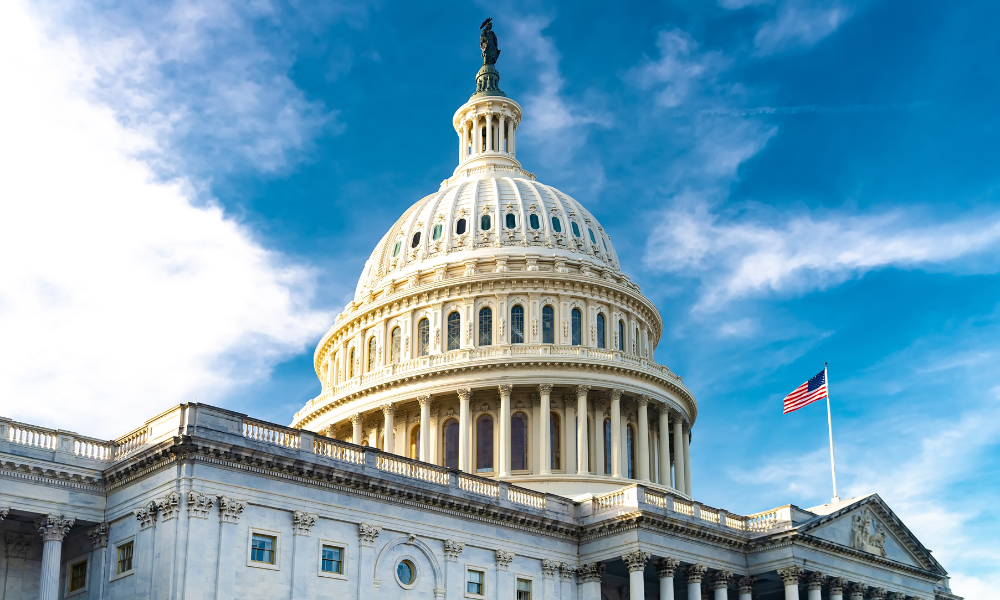MBA president pleased with passage, believes it will help homeowners and renters

Congress approved a massive $3.4 trillion tax and spending plan, reshaping key pillars of the US's economic and social policy. The House narrowly passed the package 218-214 on Thursday. With the Senate having approved it earlier in the week, the bill now heads to President Donald Trump’s desk, beating his self-imposed July 4 deadline.
Bob Broeksmit, president and CEO of the Mortgage Bankers Association, stated in a press release that the organization is pleased that certain items it deemed important to homeowners were retained in the final version of the legislation.
“MBA is pleased that the final tax package preserves or strengthens – and makes permanent – numerous pro-housing and pro-economic growth tax provisions that were identified by our Board-level Tax Task Force, led by 2025 Chair-Elect Christine Chandler and Vice Chair Owen Lee,” Broeksmit said. “We believe these provisions will benefit homeowners and renters, increase housing production, and improve the financial outcomes of our single-family and commercial/multifamily members’ businesses.
“We thank the Trump administration and House and Senate leaders for focusing on these housing and real estate matters during this legislative process and look forward to President Donald Trump signing the bill into law.”
The legislation extends tax cuts initially passed in Trump’s first term and includes the elimination of taxes on tips and overtime earnings. The package also allocates hundreds of billions of dollars toward bolstering immigration enforcement and military investments, such as Trump’s ambitious “Golden Dome” missile defense project.
To fund these priorities, the plan cuts federal safety-net programs, including nearly $1 trillion in Medicaid reductions over a decade and deep cuts to the Supplemental Nutrition Assistance Program (SNAP). According to the Congressional Budget Office (CBO), about 17 million people could lose health coverage or subsidies as a result.
Fierce battles among Republicans
House leaders spent hours persuading reluctant lawmakers to support the package. President Trump himself played a decisive role, lobbying through late-night meetings and leveraging social media to pressure holdouts. "When the president is done negotiating, the game is up — it’s time to vote," House Republican Leader Steve Scalise said as quoted by Bloomberg.
Vice President JD Vance even had to break a tie in the Senate earlier in the week to ensure passage there. Meanwhile, House Ways and Means Committee Chair Jason Smith praised the package as a win for ordinary Americans, saying it was designed for "people who don’t have lobbyists" in Washington.
“It’s about restoring sanity in a town that’s lost it, cutting waste and reining in reckless spending,” Smith said to Bloomberg. “It demands that if you’re able to work, you should. It stops asking working families to foot the bill for Washington’s bad decisions.”
While some GOP lawmakers worried about the increased debt, others focused on Medicaid and healthcare provisions. "I’m not happy with it at all," Rep. Greg Murphy (R-North Carolina) said to the Washington Post. "That’s horrible policy."
Rep. Chip Roy (R-Texas) voiced similar frustrations, criticizing the final package for failing to match tax cuts to spending reductions. “It wasn’t achieved. It was failed,” he said.
Strong criticism from Democrats
Democrats lambasted the plan, arguing it favored the wealthy while jeopardizing healthcare and essential support programs. “This bill is a deal with the devil,” said Rep. Alexandria Ocasio-Cortez (D-New York). “It explodes our national debt. It militarizes our entire economy and it strips away health care and dignity of the American people.”
The legislation eliminates most clean-energy tax credits enacted under President Biden and phases out the $7,500 electric vehicle credit starting this fall. At the same time, it makes permanent a range of corporate tax deductions and temporarily expands the child tax credit.
The feud between the Trump administration and Jerome Powell continues as William J. Pulte criticizes Powell's handling of the economy, blaming him for inflation and high mortgage costs. Powell maintains focus on the Fed's dual mandate.https://t.co/a3c3J2yHD3
— Mortgage Professional America Magazine (@MPAMagazineUS) July 2, 2025
According to the Washington Post, critics say that by 2033, the lower 60% of earners could actually lose out financially, while the wealthiest Americans would see significant tax savings. Analysts at the University of Pennsylvania’s Wharton Budget Model estimated that the top 0.1% of taxpayers would gain over $83,000 annually on average.
Despite public skepticism — a recent Pew Research poll found that only 29% of Americans supported the bill — Trump and GOP leaders insist the plan will spark economic growth and strengthen industries related to defense and border security.
Stay updated with the freshest mortgage news. Get exclusive interviews, breaking news, and industry events in your inbox, and always be the first to know by subscribing to our FREE daily newsletter.



